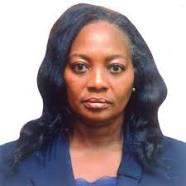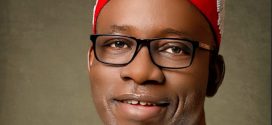A day after the World Health Organization declared Nigeria free of Ebola, the doctor who treated the country’s first case of the deadly virus and later died from the disease herself is being hailed as a hero for helping stop the outbreak.
Dr. Stella Ameyo Adadevoh, a doctor at First Consultant Hospital, oversaw treatment of Patrick Sawyer, Nigeria’s Ebola patient zero, when he arrived sick in Lagos, Nigeria’s former capital and Africa’s largest city, on a flight from Liberia in July.
Adadevoh fought to isolate Sawyer, a top official in the Liberian Ministry of Finance who did not take kindly to isolation and lied about his symptoms, officials said.
“Immediately, he was very aggressive,” Dr. Benjamin Ohiaeri, the hospital’s director, told the BBC. “He was more intent on leaving the hospital than anything else. He was screaming. He pulled his intravenous [tubes] and spilled the blood everywhere.”
Adadevoh, the Telegraph writes, “effectively saved the country from disaster by spotting that its first Ebola patient was lying about his condition, and then stopped him leaving her clinic.”
Sawyer, who had been caring for his Ebola-stricken sister, was reportedly set on visiting one of Nigeria’s Pentecostal churches “in search of a cure from one of the so-called miracle pastors,” the BBC said.
“The Liberian ambassador started calling Dr. Adadevoh, putting pressure on her and the institution,” Ohiaeri said. “He felt we were kidnapping the gentleman and said it was a denial of his fundamental rights and we could face further actions. … The only way we could be sure and live up to our responsibility to our people, the state and nation — this is all about patriotism at the end of the day — was to keep him here.”
Sawyer, 40, collapsed in Lagos on July 20 after getting off a plane from Liberia. He died just five days later. Adadevo and 11 colleagues were infected with Ebola.
“She was fine all along and then suddenly it became apparent,” Adadevoh’s son Bankole Cardoso told the news service.
She died on Aug. 19.
“We lost some of our best staff,” Ohiaeri said. “Dr. Adadevoh had been working with us for 21 years and was perhaps one of the most brilliant physicians. I worked with her. I know that she was sheer genius.”
Thanks to patient isolation and aggressive contact tracing (including 18,500 visits to 894 people), Nigeria had just 20 Ebola cases, including eight deaths — a far lower death rate than the 70 percent seen elsewhere.
Cardoso, still mourning the loss of his mother, says it’s become “more and more apparent exactly what she had done” in identifying Sawyer as patient zero.
“It really helped Nigeria to prepare and get ready to trace everybody,” Cardoso said. “And I think that’s the difference between us and our West African neighbors — Guinea, Liberia and Sierra Leone.”
Rui Gama Vaz, WHO director for Nigeria, called the containment of Ebola in the most populous country in Africa a “spectacular success story.”
“But we must be clear that we only won a battle,” Vaz added. “The war will only end when West Africa is also declared free of Ebola.”
 Hottestgistnaija.com
Hottestgistnaija.com





